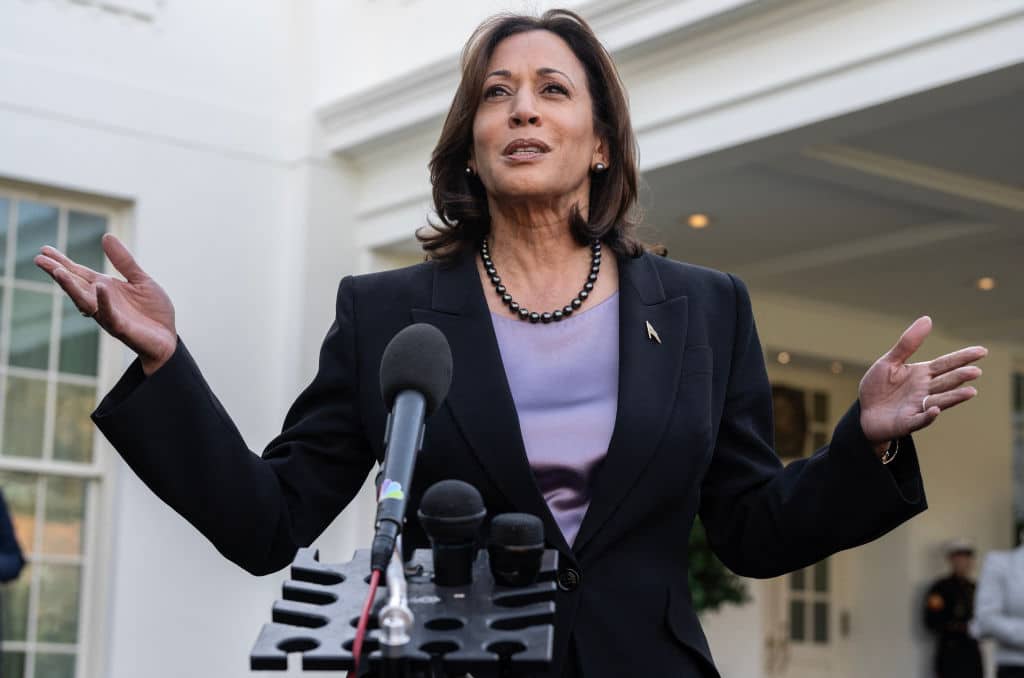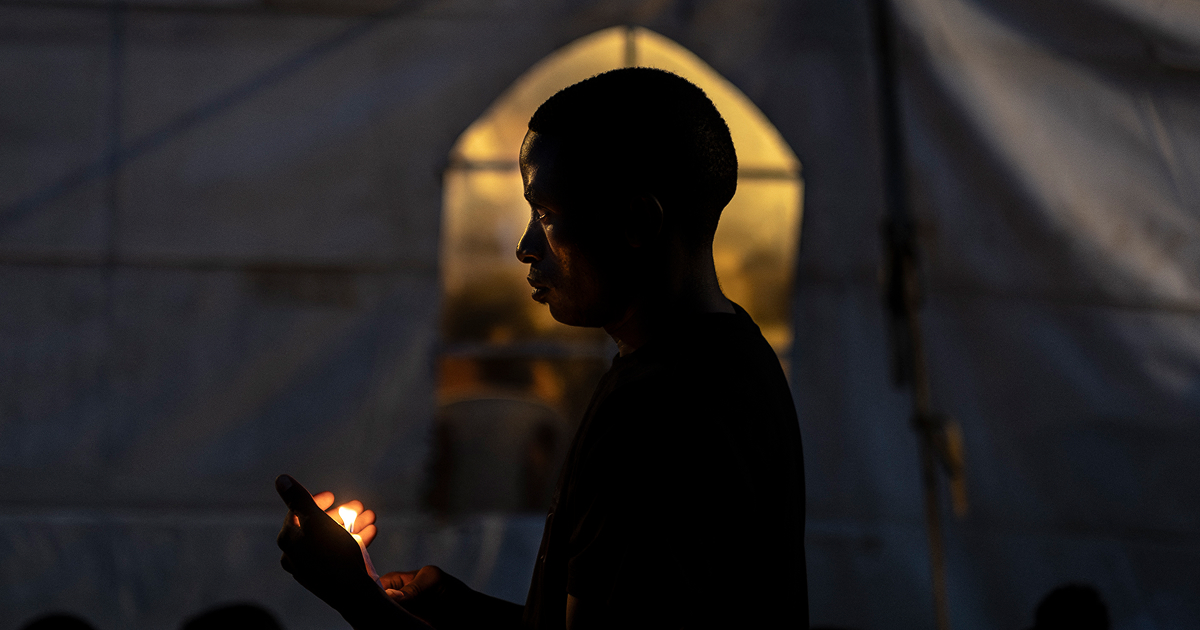A judge’s decision to temporarily block the state of Ohio law that mandates a 24-hour waiting period before an abortion occurs has been criticised as disregarding the seriousness of the situation for the women involved.
The criticism has come from the public policy arm of the Catholic Bishops of Ohio, who also warn that the decision may also contribute to women being pressurised into terminating their pregnancies.
Judge David C. Young, presiding over the Franklin County Court of Common Pleas Court, issued a preliminary injunction on 23 August that blocked the 24-hour wait law, citing the language in the 2023 state constitutional amendment, known as Issue 1, that guarantees access to abortion.
“The decision to grant a preliminary injunction for Ohio’s 24-hour waiting law shows a callous disregard for the seriousness of a woman’s situation who is considering an abortion,” Brian Hickey, executive director of the Catholic Conference of Ohio, said in an 26 August statement. “With this decision, women will be pressured into having abortions against their will and without opportunities for coercion screening.”
The lawsuit to block the 24-hour waiting period law was filed on 29 March by several pro-abortion groups, comprising the American Civil Liberties Union, the ACLU's Ohio branch, the Planned Parenthood Federation of America and the law firm Covington & Burling LLP.
The lawsuit argued that the 24-hour wait period requirement doesn’t advance patient health and violates the rights guaranteed by the Issue 1 state constitutional amendment passed in 2023.
At the time the amendment was passed, the Catholic Bishops of Ohio called it a "tragic day for women, children, and families" in the state, adding:
"We mourn that the dignity of human life remains concealed by the duplicity of a culture of death."
The ruling blocking the 24-hour wait period was called “historic” by Jessie Hill, cooperating attorney for the ACLU of Ohio, in a 23 August statement, adding that the organisation will now push to make the temporary injunction permanent.
“This is an historic victory for abortion patients and for all Ohio voters who voiced support for the constitutional amendment to protect reproductive freedom and bodily autonomy,” Hill said. “This decision is the first step in removing unnecessary barriers to care. We celebrate this ruling and will push forward to make this injunction permanent.”
Ohio voters – about 57 per cent – approved the constitutional amendment known as Issue 1 in November 2023, during the US mid-term elections, and which created a constitutional right in the state to “make and carry out one’s own reproductive decisions”, including “decisions about abortion, contraception, fertility treatment, miscarriage care, and continuing pregnancy”.
However, already on the state law books at the time the constitutional amendment passed was a state law requiring a physician to meet with a pregnant woman in a private setting at least 24-hours before an abortion is scheduled, in order to provide the woman with various information, including the medical risks, and to confirm she consents to the procedure without coercion.
In his court decision, Judge Young ruled that Issue 1 supersedes the existing waiting period law, stating:
“The language of the Amendment is clear and unambiguous,” Young said. “A person’s right to reproductive freedom is now enshrined in the Ohio Constitution. Pregnant patients are afforded the right to make certain reproductive choices. This includes abortion care.”
Young also noted that the text of Issue 1 states that the state of Ohio “shall not, directly or indirectly, burden, penalise, prohibit, interfere with, or discriminate against either an individual’s voluntary exercise of that right or a person or entity that assists an individual exercising this right”, with Young determining that the 24-hour waiting period law did just that and interfered with that "right".
“The mandatory delay exacerbates the burdens that patients experience in seeking abortion care,” Young said. “These include increasing costs, prolonging wait times, and potentially preventing a patient from receiving the type of abortion they would prefer.
“Further, the unnecessary delay can increase the medical risk to the patient’s health. Emotional harm may also result in a patient being forced to wait,” Young added.
Hickey, in his statement in response, argued the opposite. He said that the ruling “cheats” a woman considering an abortion of the opportunity to learn about the people available who could assist her in seeing the pregnancy through and about the resources to assist her both during her pregnancy and after the birth of her child.
Ohio Attorney General Dave Yost, a Republican who has always advocated against Issue 1, has said he will appeal the decision to block the 24-hour wait period.
In a 23 August statement, Yost said that while he respects the voice of the people in protecting the right to abortion through their approval of Issue 1, he nevertheless still disagrees with the ruling by Young.
“We have heard the voices of the people and recognise that reproductive rights are now protected in our constitution,” Bethany McCorkle, a spokesperson for Yost, said additionally.
“However, we respectfully disagree with the court’s decision that requiring doctors to obtain informed consent and wait 24 hours prior to an abortion constitutes a burden. These are essential safety features designed to ensure that women receive proper care and make voluntary decisions.”
The judge's decision comes on the back of the Democratic National Convention held in Chicago, when Kamala Harris was officially nominated as the Democrat's presidential candidate for the US presidential election in November.
During the convention, the Democrats continued to present abortion and the so-called defence of "women's reproductive rights" as a central plank of the party's platform heading into November's election.
RELATED: Cardinal Cupich’s opening prayer for Democratic National Convention failed to address the obvious
While Ohio has historically been considered a decisive swing state, this election it is not judged one of the six swing states that will between them most likely decide who enters the White House.
Nevertheless, Ohio remains considered a “bell-weather” state whereby whichever party does best and wins there is judged likely to go on to win the overall presidential election.
The Republican Party, while criticising the Democrat's "radical" abortion agenda, in the words of former President Donald Trump, is also trying to navigate more of a middle ground on the issue of abortion.
JD Vance recently told NBC’s Meet the Press that Donald Trump would veto a national abortion ban and that the former president “wants to end this culture war over this particular topic”, with JD Vance adding:
“If California wants to have a different abortion policy from Ohio, then Ohio has to respect California, and California has to respect Ohio.”
RELATED: Harrison Butker responds to Trump by urging ‘fellow Catholic’ JD Vance to defend the unborn
Photo: US Vice President Kamala Harris speaks to the press outside the White House following the mid-term November 7 election wins for Democrats, as well as for abortion-rights campaigners in Ohio, Kentucky and Virginia; Washington, DC, USA, 8 November 2023. (Photo by ANDREW CABALLERO-REYNOLDS/AFP via Getty Images.)
A judge’s decision to temporarily block the state of Ohio law that mandates a 24-hour waiting period before an abortion occurs has been criticised as disregarding the seriousness of the situation for the women involved.
The criticism has come from the public policy arm of the Catholic Bishops of Ohio, who also warn that the decision may also contribute to women being pressurised into terminating their pregnancies.
Judge David C. Young, presiding over the Franklin County Court of Common Pleas Court, issued a preliminary injunction on 23 August that blocked the 24-hour wait law, citing the language in the 2023 state constitutional amendment, known as Issue 1, that guarantees access to abortion.
“The decision to grant a preliminary injunction for Ohio’s 24-hour waiting law shows a callous disregard for the seriousness of a woman’s situation who is considering an abortion,” Brian Hickey, executive director of the Catholic Conference of Ohio, said in an 26 August statement. “With this decision, women will be pressured into having abortions against their will and without opportunities for coercion screening.”
The lawsuit to block the 24-hour waiting period law was filed on 29 March by several pro-abortion groups, comprising the American Civil Liberties Union, the ACLU's Ohio branch, the Planned Parenthood Federation of America and the law firm Covington & Burling LLP.
The lawsuit argued that the 24-hour wait period requirement doesn’t advance patient health and violates the rights guaranteed by the Issue 1 state constitutional amendment passed in 2023. <br><br>At the time the amendment was passed, the Catholic Bishops of Ohio <a href="https://www.ohiocathconf.org/Portals/1/Bishop%20Statements/Bishop%20Statement%20on%20Passing%20of%20Issue%201_Nov.%202023.pdf?ver=cEra8Dq7K87j_5FKixHzGw%3d%3d"><mark style="background-color:rgba(0, 0, 0, 0)" class="has-inline-color has-vivid-cyan-blue-color">called it</mark></a> a "tragic day for women, children, and families" in the state, adding:<br><br>"We mourn that the dignity of human life remains concealed by the duplicity of a culture of death."
The ruling blocking the 24-hour wait period was called “historic” by Jessie Hill, cooperating attorney for the ACLU of Ohio, in a 23 August statement, adding that the organisation will now push to make the temporary injunction permanent.
“This is an historic victory for abortion patients and for all Ohio voters who voiced support for the constitutional amendment to protect reproductive freedom and bodily autonomy,” Hill said. “This decision is the first step in removing unnecessary barriers to care. We celebrate this ruling and will push forward to make this injunction permanent.”
Ohio voters – about 57 per cent – approved the constitutional amendment known as Issue 1 in November 2023, during the US mid-term elections, and which created a constitutional right in the state to “make and carry out one’s own reproductive decisions”, including “decisions about abortion, contraception, fertility treatment, miscarriage care, and continuing pregnancy”.
However, already on the state law books at the time the constitutional amendment passed was a state law requiring a physician to meet with a pregnant woman in a private setting at least 24-hours before an abortion is scheduled, in order to provide the woman with various information, including the medical risks, and to confirm she consents to the procedure without coercion.
In his court decision, Judge Young ruled that Issue 1 supersedes the existing waiting period law, stating:
“The language of the Amendment is clear and unambiguous,” Young said. “A person’s right to reproductive freedom is now enshrined in the Ohio Constitution. Pregnant patients are afforded the right to make certain reproductive choices. This includes abortion care.”
Young also noted that the text of Issue 1 states that the state of Ohio “shall not, directly or indirectly, burden, penalise, prohibit, interfere with, or discriminate against either an individual’s voluntary exercise of that right or a person or entity that assists an individual exercising this right”, with Young determining that the 24-hour waiting period law did just that and interfered with that "right".
“The mandatory delay exacerbates the burdens that patients experience in seeking abortion care,” Young said. “These include increasing costs, prolonging wait times, and potentially preventing a patient from receiving the type of abortion they would prefer.
“Further, the unnecessary delay can increase the medical risk to the patient’s health. Emotional harm may also result in a patient being forced to wait,” Young added.
Hickey, in his statement in response, argued the opposite. He said that the ruling “cheats” a woman considering an abortion of the opportunity to learn about the people available who could assist her in seeing the pregnancy through and about the resources to assist her both during her pregnancy and after the birth of her child.
Ohio Attorney General Dave Yost, a Republican who has always advocated against Issue 1, has said he will appeal the decision to block the 24-hour wait period.
In a 23 August statement, Yost said that while he respects the voice of the people in protecting the right to abortion through their approval of Issue 1, he nevertheless still disagrees with the ruling by Young.
“We have heard the voices of the people and recognise that reproductive rights are now protected in our constitution,” Bethany McCorkle, a spokesperson for Yost, said additionally.
“However, we respectfully disagree with the court’s decision that requiring doctors to obtain informed consent and wait 24 hours prior to an abortion constitutes a burden. These are essential safety features designed to ensure that women receive proper care and make voluntary decisions.” <br><br>The judge's decision comes on the back of the Democratic National Convention held in Chicago, when Kamala Harris was officially nominated as the Democrat's presidential candidate for the US presidential election in November.
During the convention, the Democrats continued to present abortion and the so-called defence of "women's reproductive rights" as a central plank of the party's platform heading into November's election.
<strong><em>RELATED: <a href="https://catholicherald.co.uk/cardinal-cupichs-opening-prayer-for-democratic-national-convention-fails-to-address-the-obvious/?swcfpc=1"><mark style="background-color:rgba(0, 0, 0, 0)" class="has-inline-color has-vivid-cyan-blue-color">Cardinal Cupich’s opening prayer for Democratic National Convention failed to address the obvious</mark></a></em></strong>
While Ohio has historically been considered a decisive swing state, this election it is not judged one of the six swing states that will between them most likely decide who enters the White House.
Nevertheless, Ohio remains considered a “bell-weather” state whereby whichever party does best and wins there is judged likely to go on to win the overall presidential election.
The Republican Party, while criticising the Democrat's "radical" abortion agenda, in the words of former President Donald Trump, is also trying to navigate more of a middle ground on the issue of abortion.
JD Vance recently told <em>NBC’s</em> Meet the Press that Donald Trump would veto a national abortion ban and that the former president “wants to end this culture war over this particular topic”, with JD Vance adding:
“If California wants to have a different abortion policy from Ohio, then Ohio has to respect California, and California has to respect Ohio.”<br><br><strong>RELATED: <em><a href="https://catholicherald.co.uk/harrison-butker-responds-to-trump-by-urging-fellow-catholic-jd-vance-to-defend-the-unborn/?swcfpc=1"><mark style="background-color:rgba(0, 0, 0, 0)" class="has-inline-color has-vivid-cyan-blue-color">Harrison Butker responds to Trump by urging ‘fellow Catholic’ JD Vance to defend the unborn</mark></a></em></strong>
<em>Photo: US Vice President Kamala Harris speaks to the press outside the White House following the mid-term November 7 election wins for Democrats, as well as for abortion-rights campaigners in Ohio, Kentucky and Virginia; Washington, DC, USA, 8 November 2023. (Photo by ANDREW CABALLERO-REYNOLDS/AFP via Getty Images.)</em>


















